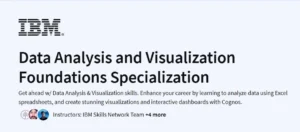What you will learn in Machine Learning in Production Course
Design an end-to-end ML production system: project scoping, data requirements, modeling strategies, and deployment constraints.
Establish a model baseline, address concept drift, and prototype the development, deployment, and continuous improvement of a productionized ML application.
Build data pipelines by gathering, cleaning, and validating datasets.
Implement feature engineering, transformation, and selection using tools like TensorFlow Extended.
Apply best practices and progressive delivery techniques to maintain a continuously operating production system.
Program Overview
Overview of the ML Lifecycle and Deployment
⏳ 3 hours
- Introduction to ML production systems, focusing on requirements, challenges, deployment patterns, and monitoring strategies.
Modeling Challenges and Strategies
⏳ 4 hours
- Covers model strategies, error analysis, handling different data types, and addressing class imbalance and skewed datasets.
Data Definition and Baseline
⏳ 4 hours
- Focuses on working with various data types, ensuring label consistency, establishing performance baselines, and discussing improvement strategies.
Get certificate
Job Outlook
Equips learners with practical skills for roles such as ML Engineer, Data Scientist, and AI Specialist.
Provides hands-on experience in deploying and maintaining ML systems in production environments.
Enhances qualifications for positions requiring expertise in MLOps and production-level machine learning applications.
Specification: Machine Learning in Production
|
FAQs
- No expert knowledge required, but Python and basic ML fundamentals are expected.
- Familiarity with supervised learning and model evaluation helps.
- Prior exposure to libraries like scikit-learn/TensorFlow is useful.
- Beginners may need extra prep time on core ML concepts.
- Course is designed to bridge theory with practical deployment.
- Teaches how to move models from Jupyter notebooks into production.
- Focuses on deployment constraints, monitoring, and scalability.
- Covers handling data drift and continuous improvement.
- Includes end-to-end project design beyond just training models.
- Uses tools relevant to industry MLOps pipelines.
- Yes, it builds strong foundations for ML in production environments.
- Teaches lifecycle management from data to deployment.
- Reinforces DevOps-style thinking applied to ML systems.
- Equips you for roles like ML Engineer, MLOps Specialist, or AI Engineer.
- Adds credibility when applying for production-focused ML jobs.
- Less math-heavy, more focused on applied engineering.
- Prioritizes deployment, monitoring, and scaling over algorithms.
- Emphasizes system design rather than isolated models.
- Projects simulate production constraints you’d face at work.
- Complements, rather than replaces, theoretical ML courses.
- Around 5 hours/week is typical, but flexible scheduling is allowed.
- Hands-on labs may take longer depending on experience.
- Can be completed in 4–6 weeks with steady effort.
- Professionals can stretch learning over 2–3 months if needed.
- Self-paced design makes it manageable alongside full-time work.





